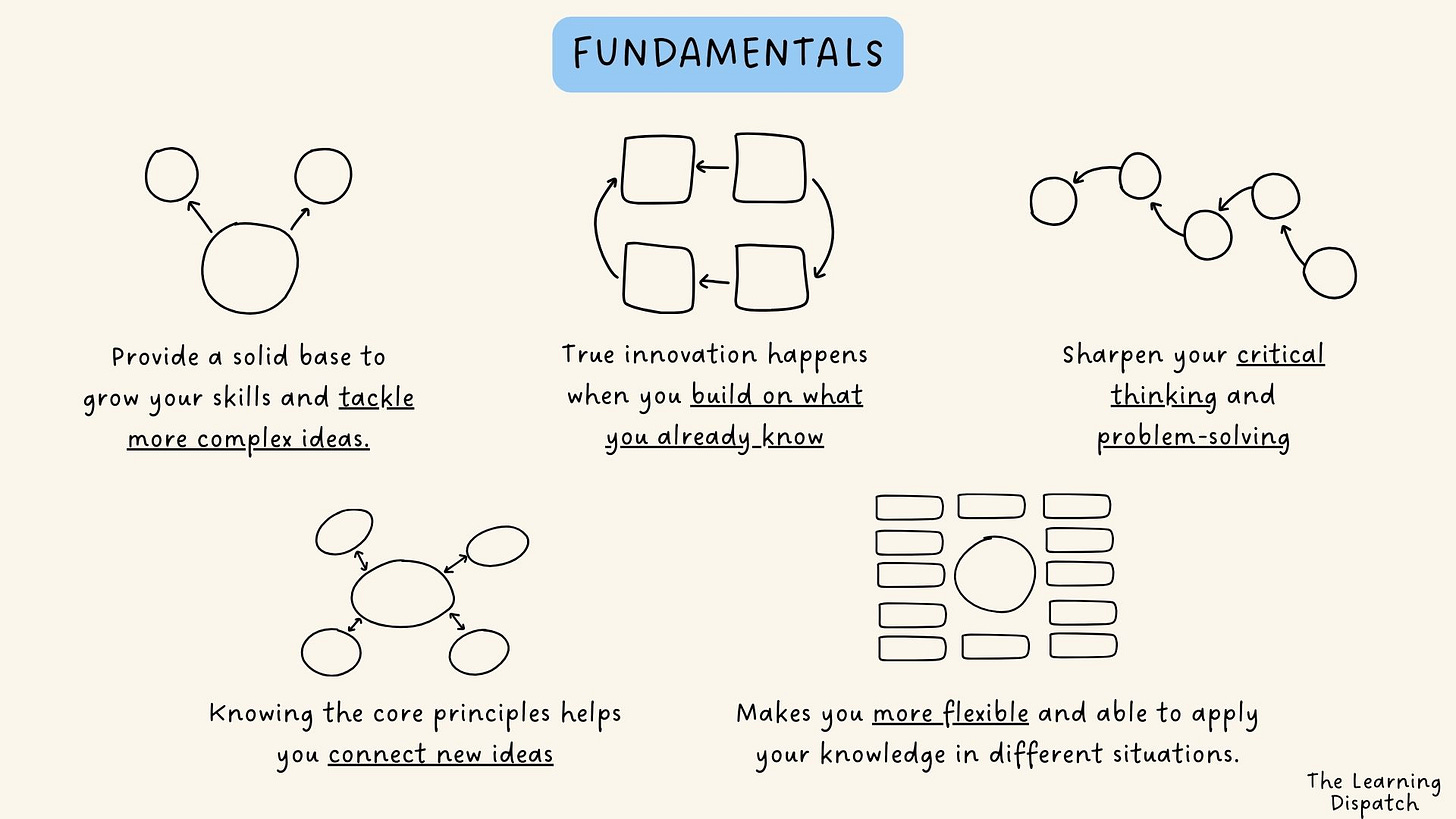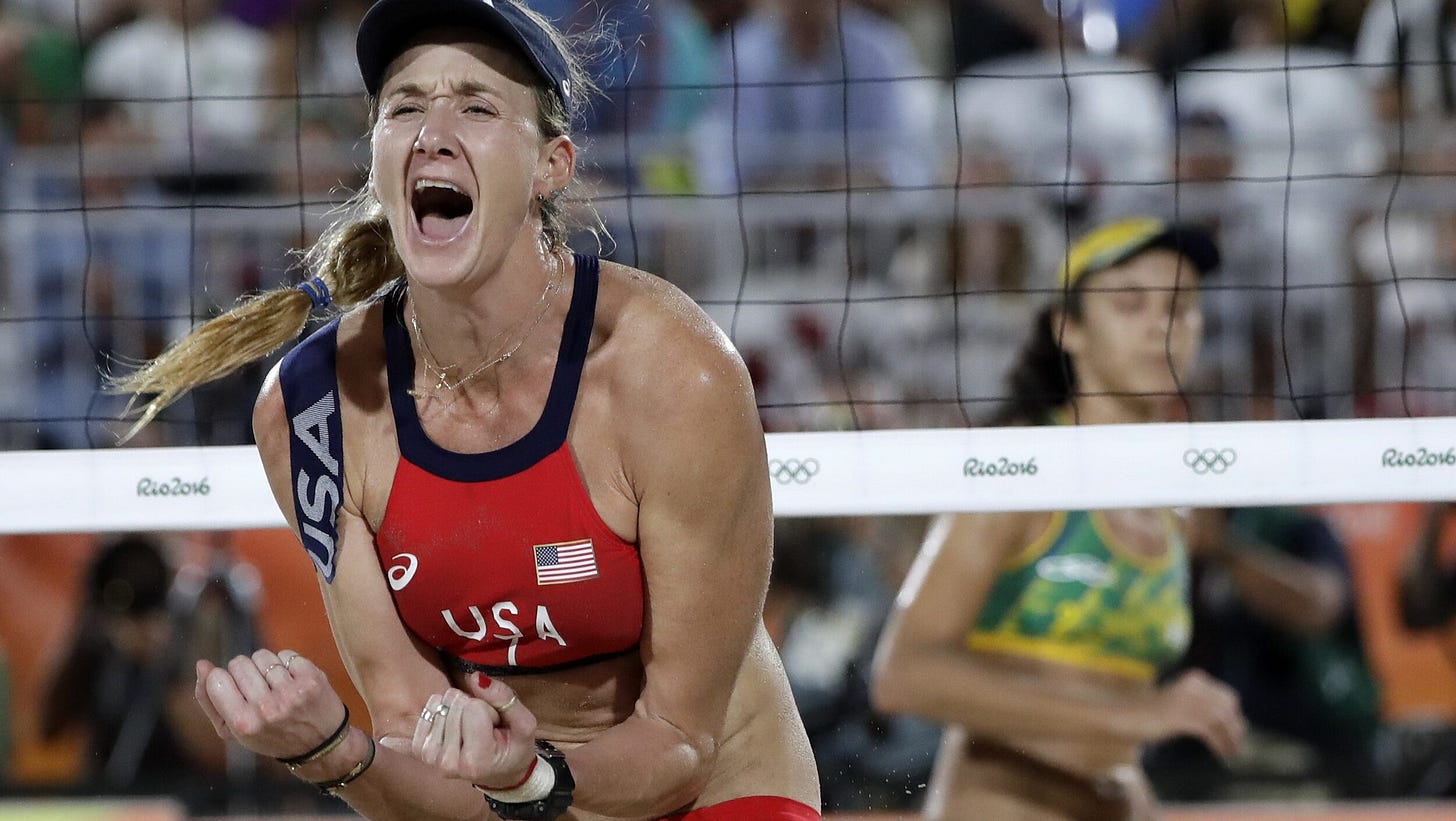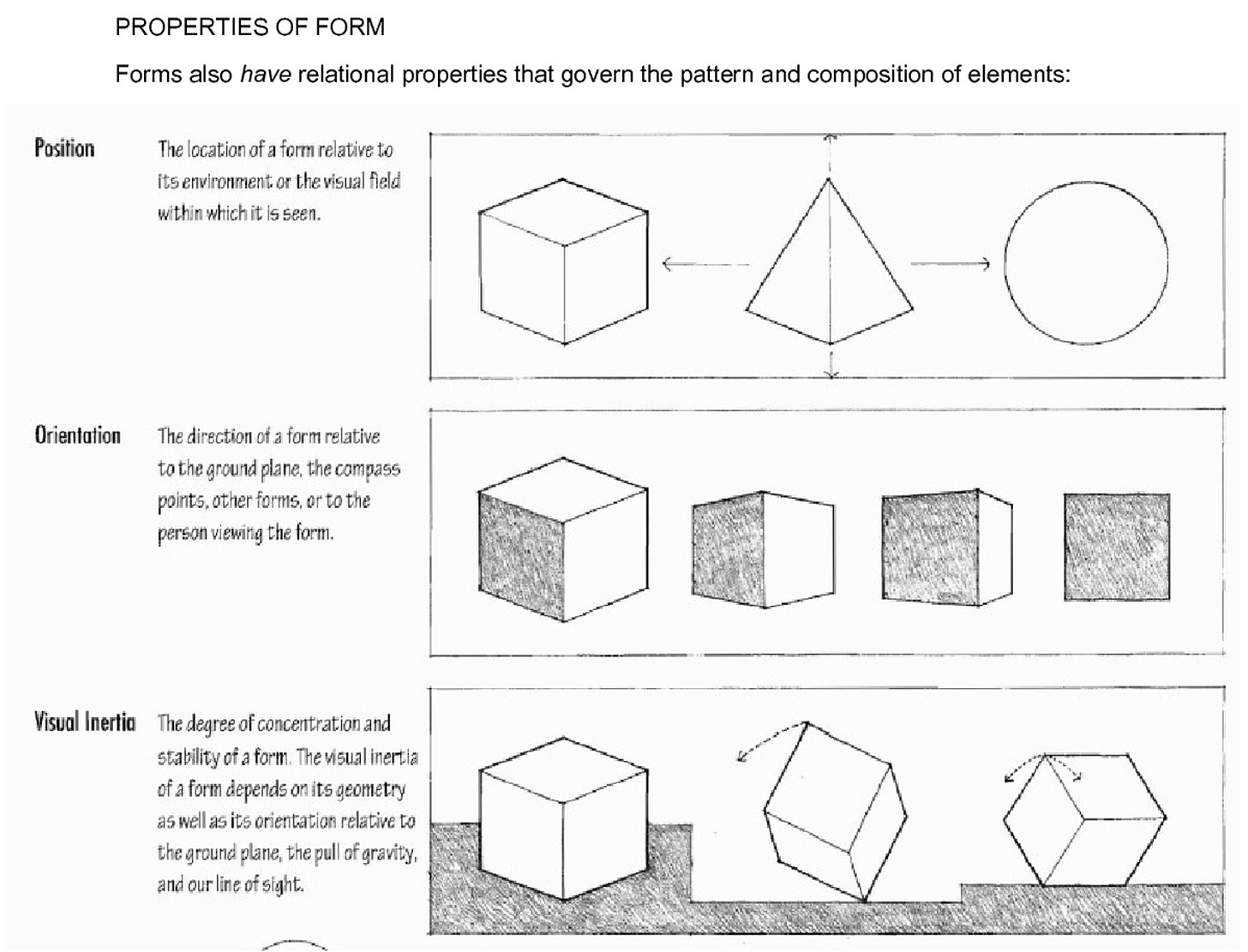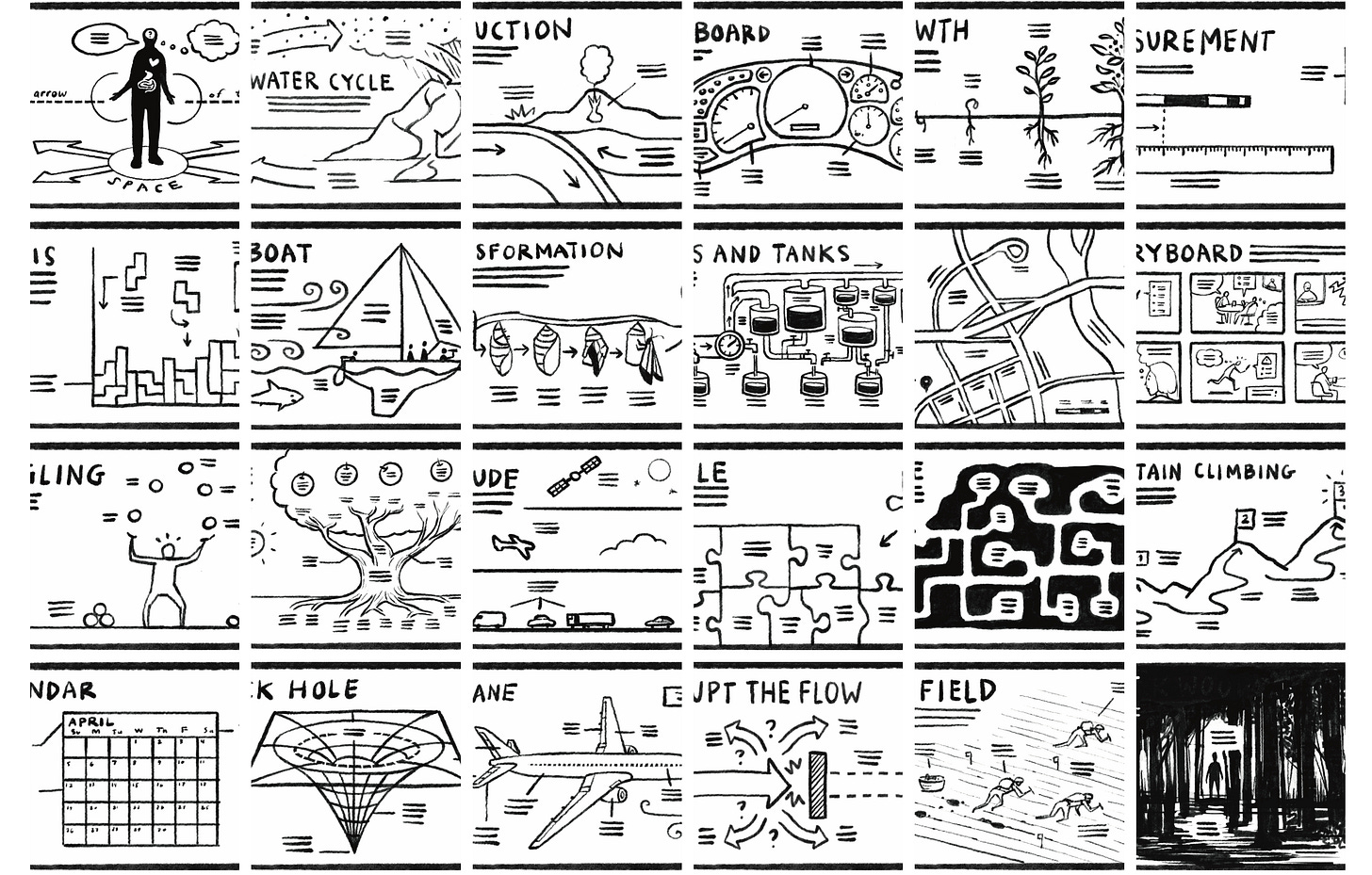Playing volleyball at the Olympics was my ultimate dream. I wanted to compete against the best, and for me, the best was Kerri Walsh Jennings. Kerri, who won three Olympic gold medals and a bronze in beach volleyball (Athens, Beijing, London, Rio de Janeiro), embodied the kind of greatness I aspired to.
While I never got the chance to face her on the court, life had a surprising way of bringing our paths together. A few years ago, I was hired to help Kerri design a learning program for volleyball players. The program focused on the often-overlooked elements of the game: mindset, habits, and fundamentals. It was a dream fulfilled, though not in the way I’d originally envisioned. (Can you imagine my face during that first Zoom call? I took like 57 screenshots.)
When asked about the secrets behind her incredible success, Kerri has shared more than once:
"I’ve been incredibly fortunate to learn from some of the world’s best trainers and coaches. The lessons and wisdom they’ve shared with me have been the foundation of a career that’s spanned over 20 years at the highest level of competition. One lesson stands out as a game-changer, both on and off the court: Master the fundamentals."
Kerri's advice about fundamentals reminded me of their universal importance, not just in volleyball but in any domain. And that’s the format we’re exploring today.
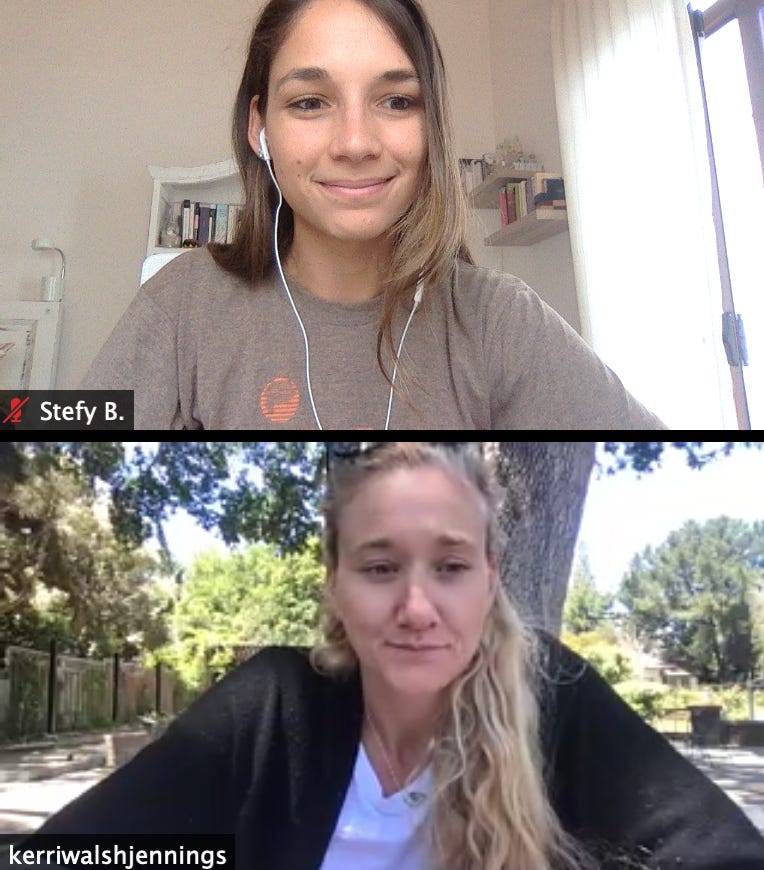
📰 What’s the format?
Fundamentals. Core principles, foundational knowledge, and basic skills that serve as the building blocks for understanding and mastering more advanced concepts or practices.
Fundamentals include:
Essential terms, definitions, and foundational theories or principles within a subject
Abilities to engage in more complex tasks
They allow learners to scaffold new information onto a stable knowledge base. They are often applicable across different contexts or domains, enabling the transfer of learning.
🎛️ What are the features?
Never ever lose touch with the fundamentals of the game. They are the springboard off of your greatest triumphs. They are what you will continually go back to as you keep leveling up. ⎯Kerri Walsh Jennings
Here are some features of good Fundamentals:
💡 Why is this format effective for learning?
Fundamentals are essential for learning because they create the foundation for advanced understanding and skill development. According to schema theory, mastering the basics helps learners build accurate mental frameworks, or schemas, which make it easier to process and integrate new information. This reduces the mental effort required for higher-order tasks like problem-solving and analysis.
Neuroscience further supports this by showing how repeated practice of foundational skills strengthens neural pathways through myelination (we explored what that is in the Tiny Desk Concerts edition 👇).
Myelination allows for automatic recall of key concepts, freeing up mental resources for creativity and strategic thinking when tackling complex challenges. Mastery of the fundamentals is about building the mental infrastructure for lifelong learning and adaptability.
How do you teach and learn the fundamentals?
Teaching fundamentals effectively means giving learners tools to organize, connect, and apply new information. Here are some ideas that can help (from the book Design for How People Learn).
Start with structure. Offer a road map, an overview, or even a catchy acronym to help learners see the big picture. Visuals also add extra cues that make information easier to remember.
Stories are magic. A well-told story, especially one that sparks emotion, sticks in ways dry facts just can’t. They help learners see the “why” behind the information and make the material feel relevant and meaningful.
Metaphors and analogies can be your secret weapon. Relating new ideas to familiar concepts taps into existing mental models, making learning feel natural and intuitive.
💌 An example and an invitation
I recently read an excellent post from
that captures the importance of fundamentals. He shared a story from his time in architecture school, where he struggled under a quite demanding professor’s guidance. At first, despite working tirelessly, things just didn’t click. It wasn’t until he learnt the fundamentals (armed with Francis Ching’s Form, Space, and Order), that everything started to change.Michael described how architecture is governed by a secret visual language of patterns: the proportions of solids and voids, the rhythm of light and texture, the flow of movement, and the symbolism embedded in space. These aren’t just technical details; they’re the foundation for creativity. Once he understood these principles, he could begin to synthesize complex ideas into something harmonious.
His story resonates across disciplines. Mastering fundamentals transforms the way we see and solve problems. Whether you’re designing a building, playing a sport, or writing an essay, the basics provide the structure that allows innovation and artistry to thrive. You can’t bend the rules or create something extraordinary until you understand the framework they’re built on.
Michael has now mapped out the core patterns behind great essays. If you're looking to elevate your writing, it's a must-read!
An invitation
Whether you're chasing Olympic dreams or mastering a new skill, the fundamentals remain the foundation of greatness. Even the most extraordinary achievements begin with mastering the basics. I always imagined Kerri’s practice sessions to be complex choreographies and awe-inspiring plays, but that was not the case. Most of the time, she even practiced without a ball! That allowed her to focus solely on her footwork to ensure her fundamentals are rock solid.
The BEST OF THE BEST have mastered the basics and continually build their high flying, transcendent careers off of that stability - Jordan, Kobe, Misty, Turasi, Morgan, Biles… I have no doubt that each of these masters would say the same: a sincere & consistent focus on the ABC’s allow for a journey that will lead you to the always desirable XYZ’s… ⎯ Kerri Walsh Jennings
Here’s my prompt for you: When tackling a new or fast-evolving skill, what does "getting back to basics" mean for you? What are the key terms, concepts, principles, or abilities you need to focus on to build a foundation for tackling more complex tasks?
🏷 Summary
Fundamentals matter because they help you master complex skills, helping you think critically, solve problems, and adapt knowledge across different contexts.
Repeated practice builds strong mental frameworks and neural pathways, making basics automatic and freeing your brain for bigger challenges.
For beginners, start with structure and guidance. For experts, you can skip the basics.
I appreciate your time. Thank you for reading! 💙
I value your feedback (suggestions, critiques, positive reinforcement, constructive ideas…) as well as your tips or suggestions for future editions. I’d love to hear about you in the comments.
→ Or just click the heart symbol. That always makes my day.







